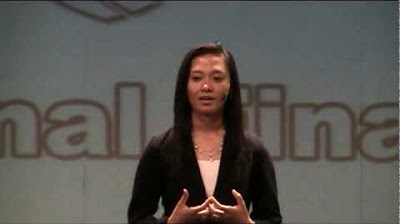Maori communities use tourism to keep culture alive
Summary
TLDRThe speaker reflects on a lifetime of involvement in tourism, starting from childhood when they would entertain visitors for pennies. They emphasize the importance of sharing the authentic Maori way of life, including traditional cooking methods and storytelling. The script also touches on the significance of preserving Maori language, culture, and myths for future generations. The speaker discusses the Maori values of stewardship and guardianship of the environment, and how these values are integrated into their tourism experiences, such as traditional massages, to ensure visitors leave feeling nourished and connected.
Takeaways
- 🚗 Early tourism experiences involved children interacting with tourists as they arrived by car, offering penny Hakka services.
- 🏞️ Tourism in the area was unstructured, with visitors seeking an authentic way of life and Maori worldview.
- 🍲 Traditional cooking methods have evolved, with modern adaptations like 'moldy microwave' enhancing flavors while preserving cultural practices.
- 👪 The speaker's family has a history in guiding and tourism, with the mother becoming a guide after marrying into the family.
- 🏞️ The area's history is rich, with guides providing insights into life from the early 1900s to the 1920s.
- 🏡 Life remains simple in the community, with a focus on traditional living and the importance of passing on language, culture, and myths.
- 🌋 Special volcanic rocks are used in cooking, highlighting the use of natural resources and traditional methods.
- 🤲 The importance of cultural preservation is emphasized, ensuring the Maori language, culture, and myths are not lost to future generations.
- 💆♀️ Maori massage is offered as a therapeutic experience, with benefits beyond a normal massage, including rebalancing and increased energy.
- 🤝 Maori values are central to the tourism experience, focusing on stewardship, guardianship, and the upliftment of visitors.
Q & A
What activity did the speaker engage in as a child related to tourism?
-As a child, the speaker and other kids would run down and jump on the running boards of cars, hanging on to the windows, and ask visitors if they would like a penny Hakka, which was a way of entertaining the visitors and earning a little cash.
What does the speaker suggest is the main interest of tourists visiting their area?
-The speaker suggests that tourists are interested in experiencing a way of life and stepping into a Maori worldview.
How has the method of cooking changed in the speaker's community?
-The method of cooking has changed from traditional methods to using a 'moldy microwave', which is a term their children use, but it still enhances the flavors of the food.
What role did the speaker's mother play in the community?
-The speaker's mother became a guide after marrying and moving to the area, sharing knowledge about how they cook, bathe, and live within the waters of the area.
What is the importance of preserving language, culture, and myths and legends according to the speaker?
-Preserving language, culture, and myths and legends is important to the speaker as it ensures these aspects of Maori culture are not lost and can be passed on to the next generation.
What special volcanic rocks are used in the cooking process as mentioned in the script?
-The special volcanic rocks are used to get them hot and then quickly put into a pit to cook food, which is a traditional method that helps retain the culture.
What is the significance of the Maori values in the tourism experiences described by the speaker?
-Maori values such as being stewards and guardians of the environment (Tika) and uplifting and nourishing others (Manaakitanga) are significant as they guide the tourism experiences, ensuring that visitors not only enjoy the culture but also leave feeling better and more connected.
How does the speaker describe the relationship formed between visitors and the local community?
-The speaker describes the relationship as potentially forming a tight bond, where visitors are not just tourists but are welcomed as part of the community, fostering a warm and personal connection.
What is the 'midi massage' mentioned in the script and its benefits?
-The 'midi massage' is a traditional Maori massage that aims to get people back into balance, providing more energy and clarity, with benefits beyond those of a normal therapeutic massage.
What is the connection between the companies mentioned by the speaker?
-The connection between the companies is the Maori values they uphold, which guide their practices and ensure that visitors have a meaningful and enriching experience.
What does the speaker mean by 'earthing idea' in the context of tourism?
-The 'earthing idea' refers to the concept of grounding visitors in the local culture and environment, allowing them to form a deeper connection with the place and its people beyond being mere tourists.
Outlines

Dieser Bereich ist nur für Premium-Benutzer verfügbar. Bitte führen Sie ein Upgrade durch, um auf diesen Abschnitt zuzugreifen.
Upgrade durchführenMindmap

Dieser Bereich ist nur für Premium-Benutzer verfügbar. Bitte führen Sie ein Upgrade durch, um auf diesen Abschnitt zuzugreifen.
Upgrade durchführenKeywords

Dieser Bereich ist nur für Premium-Benutzer verfügbar. Bitte führen Sie ein Upgrade durch, um auf diesen Abschnitt zuzugreifen.
Upgrade durchführenHighlights

Dieser Bereich ist nur für Premium-Benutzer verfügbar. Bitte führen Sie ein Upgrade durch, um auf diesen Abschnitt zuzugreifen.
Upgrade durchführenTranscripts

Dieser Bereich ist nur für Premium-Benutzer verfügbar. Bitte führen Sie ein Upgrade durch, um auf diesen Abschnitt zuzugreifen.
Upgrade durchführenWeitere ähnliche Videos ansehen
5.0 / 5 (0 votes)






